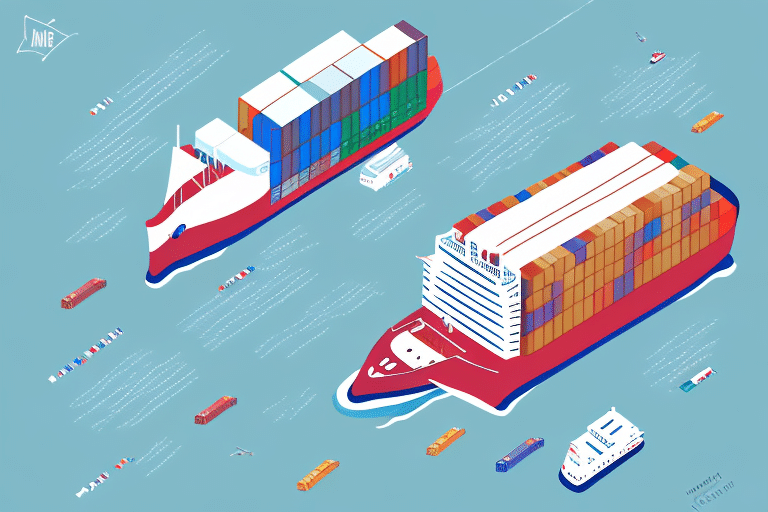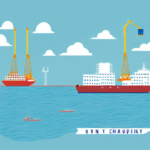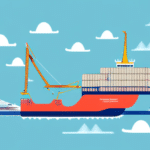Understanding Shippers in the Shipping Industry
As someone who regularly sends and receives parcels, you may have encountered the term "shipper" before. But what exactly is a shipper in the context of shipping and logistics? In this article, we'll explore the ins and outs of shippers, providing detailed explanations and insights into shipping basics.
Types of Shippers
A shipper is essentially any party responsible for transporting a shipment from one point to another. Depending on the type of goods being shipped and the distance they need to travel, shippers can take various forms.
Individual Consumers
Individual consumers often act as their own shippers by arranging for a courier to collect and deliver their packages.
Small and Medium-Sized Businesses
Small businesses may choose to work with regional carriers or utilize postal services. Their shipping needs are typically less complex, allowing them to manage shipments without extensive logistics expertise.
Large Enterprises
Larger companies with high shipping volumes are more likely to engage third-party logistics providers (3PLs) who can manage their entire supply chain. This includes coordinating with various carriers, handling storage, and managing distribution efficiently.
Freight Forwarders
Freight forwarders specialize in arranging the transportation of goods on behalf of their clients. They collaborate with carriers, customs brokers, and other logistics providers to ensure shipments are delivered on time and in good condition. Additionally, freight forwarders can offer services such as insurance, warehousing, and customs clearance.
E-commerce Shipping Options
The rise of e-commerce platforms has introduced unique shipping options. Many online retailers offer free shipping to customers meeting certain criteria, such as minimum purchase amounts or loyalty program memberships. Innovations like drone deliveries and autonomous vehicles are also beginning to revolutionize the shipping industry, potentially transforming last-mile delivery processes.
Choosing the Right Shipper
When selecting a shipper, several factors should be considered to ensure reliability and cost-effectiveness. Evaluating these factors can help you make informed decisions tailored to your shipping needs.
Experience and Reliability
Assess the shipper's experience in the industry and their track record for reliability. Look for carriers with a history of timely deliveries and minimal disruptions.
Cost-Effectiveness
Compare shipping rates and understand the fee structures, including any additional charges such as fuel surcharges or handling fees.
Transit Time
- What is the expected delivery timeframe for your shipments?
- Does the shipper offer expedited shipping options if needed?
Types of Cargo Handled
- Can the carrier accommodate your specific types of goods, including hazardous or perishable items?
- Do they have the necessary equipment and expertise to handle your shipments?
Insurance Coverage
- What type of insurance is available for your shipments?
- Does the coverage meet your needs in case of loss or damage?
Customer Service
Ensure the shipper offers responsive and helpful customer service to address any issues or concerns that may arise during the shipping process.
Environmental Impact
Consider the carrier's commitment to sustainability. Shippers that prioritize eco-friendly practices, such as using alternative fuels or reducing packaging waste, contribute to a more sustainable supply chain.
The Role of a Shipper in the Shipping Process
Once you've selected a shipper, understanding their role in the shipping process is crucial for smooth operations.
Basic Responsibilities
At a fundamental level, shippers are responsible for picking up your shipment and transporting it to the destination. This includes handling documentation and ensuring compliance with relevant regulations.
Comprehensive Services
More comprehensive shipping services may involve packing, labeling, and tracking your shipment from start to finish. These additional services help ensure that goods arrive safely and efficiently.
Communication and Transparency
Effective communication is vital. Shippers should keep you informed about the status of your shipment, including any delays or issues that may arise, allowing you to make necessary adjustments to your operations.
Value-Added Services
Some shippers offer value-added services such as insurance, warehousing, and distribution. These services can streamline your supply chain, reduce costs by consolidating shipments, and optimize delivery routes.
Common Challenges and Solutions in Shipping
Despite meticulous planning, shippers often encounter various challenges during the shipping process. Understanding these challenges and implementing effective solutions can enhance your shipping operations.
Delays and Unforeseen Circumstances
Delays can occur due to weather conditions, unforeseen events, or logistical issues. Partnering with a reputable carrier and having contingency plans in place can mitigate the impact of such delays.
Customs and Regulatory Hurdles
Customs holdups and compliance with international shipping regulations can complicate the shipping process. Working with knowledgeable logistics providers who understand regulatory requirements can help navigate these complexities.
Lost or Damaged Shipments
Loss or damage during transit is a significant concern. Investing in adequate insurance coverage and employing secure packaging methods can reduce the risk of losses.
Lack of Supply Chain Visibility
Limited visibility into the supply chain can hinder effective tracking and issue resolution. Utilizing technologies like GPS tracking and real-time monitoring systems enhances visibility and helps identify potential issues early.
Compliance with Regulations
Maintaining compliance with regulations related to hazardous materials, import/export controls, and other legal requirements is essential. Staying informed about regulatory changes and collaborating with experts can ensure compliance.
Shipping Terminology: Key Terms You Need to Know
Understanding shipping terminology is crucial for navigating the logistics industry effectively. Here are some key terms to familiarize yourself with:
- Bill of Lading (BOL): A legal document detailing the goods being transported, the parties involved, and the terms of the agreement.
- Freight Forwarder: A company specializing in organizing and managing the transportation of cargo on behalf of customers.
- Incoterms: Standardized terms used in international trade to define the responsibilities and costs associated with shipments.
- Demurrage: Fees charged by carriers when containers are not picked up or returned within the agreed-upon timeframe.
- FCL (Full Container Load): Shipping method where a single customer's goods occupy the entire container.
- LCL (Less than Container Load): Shipping method where multiple customers' goods share the same container.
Understanding these terms can help you communicate more effectively with shippers and navigate the complexities of shipping logistics.
Shipping Regulations and Compliance
Shipping regulations and compliance requirements vary depending on the type of goods, the countries involved, and other factors. Adhering to these regulations is essential to avoid legal issues and ensure smooth shipping operations.
Common Regulations
- Hazardous Materials Restrictions: Regulations governing the transport of dangerous goods.
- Export Control Regulations: Laws controlling the export of certain goods for security and foreign policy reasons.
- Sanctions Compliance: Ensuring shipments do not violate international sanctions against specific countries or entities.
Ensuring Compliance
Working with a knowledgeable logistics provider can help guide you through compliance requirements. Staying updated on regulatory changes through government websites and industry publications is also crucial.
Record-Keeping
Maintaining accurate and detailed records of all shipments, including compliance documentation, can help avoid potential penalties and legal issues.
Shipping Methods and Best Practices
Choosing the right shipping method is vital for meeting your delivery timelines, budget, and quality requirements. Here are some common shipping methods and best practices for efficient operations.
Shipping Methods
Air Freight
Air freight is the fastest shipping method, ideal for high-value or time-sensitive goods. However, it is generally more expensive compared to other methods.
Ocean Freight
Ocean freight is cost-effective for bulk shipments and large quantities of goods. It is suitable for non-perishable items where delivery speed is not a critical factor.
Ground Transportation
Ground transportation, including trucking and rail, offers flexibility and is suitable for domestic shipments or short international routes.
Choosing the Right Method
Consider factors such as the size and weight of your shipment, required delivery speed, and destination when selecting a shipping method. For perishable items, faster methods like air freight may be necessary, while non-perishable goods could be shipped via more economical ocean freight.
Best Practices
- Proper Labeling: Ensure all shipments are accurately labeled to prevent misrouting and delays.
- Secure Packaging: Use appropriate packaging materials to protect goods during transit.
- Clear Communication: Maintain open lines of communication with your carrier to address any issues promptly.
- Utilize Technology: Implement tracking systems to monitor shipments in real-time and improve supply chain visibility.
Technology and Future Trends in Shipping
Advancements in technology are transforming the shipping industry, making it more efficient and responsive to modern demands. Staying abreast of these trends can provide competitive advantages and enhance shipping operations.
Emerging Technologies
- Blockchain: Enhances transparency and security in tracking shipments by providing a decentralized ledger of transactions.
- Autonomous Vehicles: Drones and self-driving trucks are being explored for last-mile deliveries, improving delivery speed and reducing labor costs.
- Internet of Things (IoT): IoT devices enable real-time monitoring of shipments, providing data on location, temperature, and other critical parameters.
Sustainable Practices
There is a growing emphasis on sustainability in shipping. Practices such as using alternative fuels, optimizing routes to reduce emissions, and implementing eco-friendly packaging are becoming standard to minimize environmental impact.
Future Trends
- Increased Automation: Automation in warehousing and logistics is expected to enhance efficiency and reduce operational costs.
- Data Analytics: Leveraging big data to optimize shipping routes, predict demand, and improve decision-making processes.
- Customer-Centric Solutions: Enhancing the customer experience through improved tracking, faster delivery options, and more flexible shipping solutions.
The Future of Shipping: Trends to Watch Out For
The shipping industry is continually evolving, shaped by technological advancements and changing market demands. Key trends to watch include:
- Autonomous Delivery Vehicles: Further development and deployment of autonomous trucks and drones for efficient last-mile delivery.
- Sustainable Packaging: Increased use of biodegradable and recyclable materials to reduce environmental footprints.
- Enhanced Supply Chain Integration: Greater integration of supply chain processes through advanced software and real-time data sharing.
- Personalization and Flexibility: More personalized shipping options catering to specific customer needs and preferences.
By staying informed and prepared for these trends, businesses can ensure their shipping operations remain competitive and adaptive in the evolving landscape.
Conclusion
From choosing the right shipper to embracing new technologies and best practices, there's a lot to consider in shipping and logistics. By staying informed and taking a proactive approach, businesses and consumers alike can ensure their shipments are always delivered quickly, securely, and cost-effectively.






















